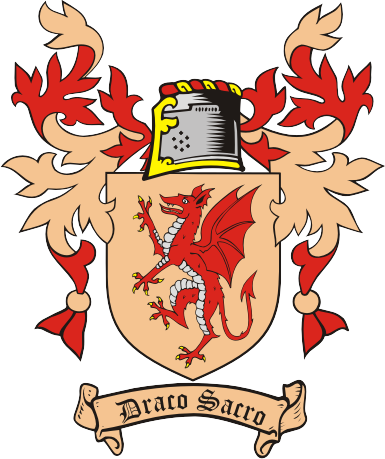History of the Nosferatu
While there are many different vampire legends from around the world, the Nosferatu originated in Eastern Europe and are the most powerful of all vampires because they are the direct descendants of either Dracula himself or one of his loyal Knights of the Sacred Order of the Dragon Military Organization.
Sacred Order of the Dragon
|
The Sacred Order of the Dragon was established by the Holy Roman emperor Sigismund in 1387 as a military force dedicated to protecting the Catholic Church and all of Christendom. The fifteenth century prince of Wallachia, Vlad Dracula and his father, Dracul were high ranking knights in the Sacred Order of the Dragon. In fact, Vlad Dracul was named in honor of their family’s prestigious appointments into the Sacred Order of the Dragon as “Dracul” actually means Dragon in Romanian. |

|
Dracula & "The Nosferatu"
Vlad Dracul was therefore known as “Dracula” which means son of the Dragon. Dracula trained for many years as a warrior, and was a legendary swordsman. He emerged as the leader of the Order and defeated great waves of invading Turkish armies even though his forces were greatly outnumbered. Dracula accomplished such feats with brilliant strategies and trained his forces in guerilla tactics. Dracula also used psychological warfare by impaling captured forces on the battlefield which led to his nickname as Vlad the Impaler or Vlad Tepes. Historical accounts also indicate that Dracula would drink cupfuls of blood amongst his impaled adversaries as a display of machismo and invincibility to further motivate his warriors. The act of drinking blood was also seen as a way of displaying true supremacy over an adversary, not unlike a carnivore eating its kill. No doubt, such actions fueled rumors of vampirism. These events led to legends that Dracula and his Order of the Dragon Knights could not be defeated or even killed in battle because they were all “Nosferatu”.
Even to this day, Dracula and his Knights are considered to be national heroes in Romania for their bravery and skill in defeating the numerically superior Ottoman armies. In many ways, Dracula was very similar to William Wallace (Braveheart) of Scotland.